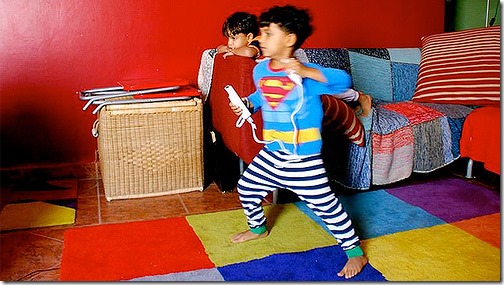The Problem with Genres & Game Design
As someone who contributes to creating games I have a difficult time understanding what other designers mean to say when they use a genre to describe a game system and its mechanics. For example, if someone says a game is a “First Person Shooter” I know that it is common for that genre to incorporate exploration, fast reflexes, precise hand-eye coordination, puzzle solving, tactics, etc. — But when talking game design, this is usually not the clear picture they intended: does their specific game involve any focus on puzzle solving? Does the player actually need to do any exploring?
This problem can cause an explosion of miscommunication among team members and result in an unfocused gameplay experience that ends up feeling like a mishmash of everyone’s ideas on what a game of this genre is supposed to be. Arguments can arise as people from different perspectives use a different foundation for discussion.
By looking at this problem, it’s obvious that vocabulary is at fault. Genres are designed to help the consumer by describing not only the raw game mechanics but also the theme, styling, and content of the media. This makes genres inappropriate and confusing when used to communicate the fine details of game design. This article aims to provide a more precise way of communicating the elements of play to avoid the issues that arise when describing a game based on genre.
A More Precise Communication Style
There is a field of thought that says that learning and exercising skills is instinctively fun for humans and animals. This is what drives us to play and what brings us enjoyment in play. With this in mind I find it helpful to understand “fun” as the act of learning and exercising skills. Games can consist of combinations of different skills: Like chemical compounds are composed of chemical elements, a game system is composed of the skills which it develops and exercises.
Some skills that are commonly developed and exercised in games include the following:
- Problem solving skills
- Math skills
- Statistics skills
- Pattern recognition skills
- Organization/categorization skills
- Memory skills
- Dexterity skills
- Rhythm skills
- Strategy & tactics skills
- Navigation skills
- Exploration skills
- Visual comprehension skills
- Social skills
- Role playing skills
The vocabulary of skills doesn’t only provide a solid base of communication, but also forces you to think in terms of the most fine-grained elements that make up your gameplay experience. Knowing that a component of my game system is designed to exercise a player’s memory skills will help me design that experience to be more focused, coherent, and accessible to the player.
I may still use a genre, such as a First Person Shooter, to describe the presentation, pre-play expectations, high-level features, etc., but when communicating a game system design and fleshing out the details of game mechanics, human skills can be a much more effective way of communicating and thinking about your game.
